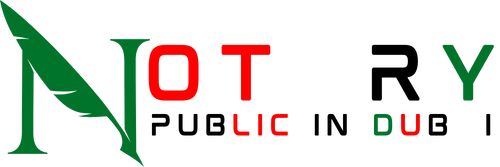Introduction
A notary public plays a vital role in the authentication of legal documents, especially in matters involving a power of attorney. A power of attorney is a legal document that grants one person the authority to act on behalf of another in legal, financial, or medical matters. To ensure the validity and legal enforceability of this document, it is essential to have it notarized by a certified notary public.
When it comes to the execution of power of attorney documents, the involvement of a notary public helps prevent fraud, misrepresentation, and disputes. The notary verifies the identities of the parties, confirms their willingness to sign the document, and witnesses the signing process. The notary public power of attorney is thus a safeguard for both the principal and the agent, ensuring transparency and compliance with the law. It is especially crucial in jurisdictions where notarization is mandatory for powers of attorney to be recognized by courts, banks, and government entities.
Why Notarization is Crucial for Notary Public Power of Attorney
Notarization of a power of attorney provides legal weight and credibility to the document. Many legal and financial institutions require a notarized power of attorney before they allow any transactions or actions to be carried out by the appointed agent. The notary public power of attorney ensures that the individual granting the authority is of sound mind. And is not acting under duress.
It also adds a layer of protection by confirming the identity of the person executing the power of attorney. In many cases, especially for international use, a power of attorney without notarization is considered incomplete or invalid. Moreover, a notarized power of attorney often needs to be attested or legalized for use abroad. Without proper notarization, delays in important financial or medical decisions may occur. Therefore, the notary public power of attorney process is not just a formality. But a necessity to ensure seamless and secure legal representation.

Types of Power of Attorney
There are several types of power of attorney, each with its own purpose and legal implications. The most common ones include general power of attorney, special power of attorney, durable power of attorney, and medical power of attorney. Each of these types typically requires notarization to be legally binding and accepted by relevant authorities. The general power of attorney grants broad powers to the agent, such as managing finances, real estate, or business matters.
A special power of attorney limits the agent’s authority to specific tasks or transactions. A durable power of attorney remains in effect even if the principal becomes mentally incapacitated. A medical power of attorney allows the agent to make healthcare decisions on behalf of the principal. In all these cases, a notary public power of attorney ensures that the documents are executed correctly and can stand up in court if challenged. The notary serves as an impartial witness, giving credibility to the process and protecting all parties involved.
The Legal Process of Notarizing
The process of notarizing a power of attorney begins with preparing the document according to the legal requirements of the jurisdiction. The person granting the power, known as the principal, must appear before the notary public with valid identification. The notary public will review the power of attorney document to ensure it is complete and properly worded. They will then confirm the identity of the principal and assess their understanding and willingness to sign the document.
Once the verification is complete, the principal signs the document in the presence of the notary. The notary then affixes their official stamp and signature, completing the notarization process. In some cases, witnesses may also be required. The notary public power of attorney process is conducted with strict attention to detail to avoid any legal challenges in the future. It is essential that the notary maintains a record of the notarization for reference or legal use if required later.
International Use and Legalization
In many instances, a power of attorney must be used in a foreign country. This adds another layer of legal complexity, as the document often needs to go through legalization or apostille procedures after notarization. Once the notary public power of attorney process is complete. The document may need to be submitted to the Ministry of Foreign Affairs or a similar authority for authentication.
After that, it may also require attestation from the embassy or consulate of the destination country. This multi-step process ensures that the notarized power of attorney is legally valid and recognized in another jurisdiction. Without these steps, the document may be rejected abroad, causing delays and legal issues. Therefore, it is highly advisable to work with professionals who understand the legal requirements for notarization and legalization. A notarized power of attorney with proper attestation gives peace of mind to both the principal and the agent. When dealing with international legal or financial matters.
Common Mistakes to Avoid
While the notary public power of attorney process is relatively straightforward, several common mistakes can compromise its validity. One frequent error is using vague or ambiguous language that can lead to misinterpretation. It’s crucial that the roles and responsibilities of the agent are clearly defined. Another mistake is failing to include the necessary legal clauses, such as those specifying the duration of the power or the circumstances under which it becomes active.
Many people also neglect to have the document properly notarized or witnessed, which can render it invalid. Using outdated templates or copying documents from the internet without professional guidance is another risk. Additionally, not considering the specific legal requirements of the jurisdiction. Where the power of attorney will be used can lead to rejection by banks or government offices. To avoid these pitfalls, individuals should always seek the assistance of a certified notary public and, when necessary, a legal advisor who is experienced in preparing power of attorney documents.
Benefits of Using a Notary Public Power of Attorney
Engaging a notary public for power of attorney services provides multiple advantages. Firstly, it ensures that the document is legally valid and recognized by relevant authorities. Secondly, it reduces the chances of fraud, coercion, or misrepresentation. The notary serves as an impartial third party, confirming the authenticity of the transaction. Additionally, a notarized power of attorney simplifies the process when dealing with banks, government agencies, hospitals, and courts, as these institutions often require officially notarized documents.
Furthermore, using a notary public gives peace of mind to the principal, knowing that their rights and interests are protected. It also reassures the agent, who is given the confidence to act on the principal’s behalf without fear of legal complications. A properly notarized power of attorney also facilitates international use when combined with the appropriate attestation or legalization. The notary public power of attorney process is a cornerstone of secure legal delegation. And is essential in both personal and business contexts.

Conclusion Notary Public Power of Attorney
When it comes to important legal matters such as drafting and notarizing a power of attorney, professionalism and accuracy are key. At our firm, we specialize in notary public power of attorney services with full legal compliance and precision. Whether you need a general power of attorney, a special authorization, or a durable document for medical or financial purposes, we ensure it is correctly prepared, signed, and notarized.
Our experienced team understands the intricacies of both local and international requirements, including attestation and legalization for use abroad. We offer reliable, efficient, and confidential services tailored to your individual or business needs. You can count on us to guide you through every step of the process, from document drafting to final notarization and attestation. Contact us today to learn how we can assist you with your notary public power of attorney requirements. Let us handle the legal complexities while you focus on what matters most.
